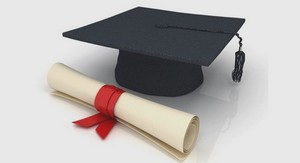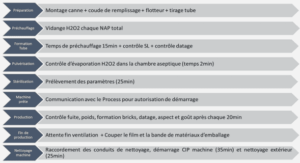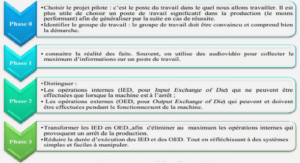Le rôle des préférences et interactions sociales dans la performance scolaire
On the Behavioral Determinants of School Achievement
Abstract Non-cognitive skills play a crucial role in human capital formation. In this paper, we investigate how soft skills are related to school achievement. We use a lab in the field experiment with pupils in middle school to analyze the relationship between social preferences, such as altruism, degree of cooperation or willingness to compete, and grades. We find that willingness to compete is a strong predictor of individual educational achievement, while selfishness is associated with lower grades. Key words: lab-in-the-field experiment; education; preferences; cooperation; competition; teenagers JEL code: C70, A13, C92 1This chapter is based on joint work with David Masclet and Thierry Penard. I am indebted to Roberto Brunetti and Lucile Henry for their comments on a previous version of this paper. We are grateful to Elven Priour for helping to program the experiment. We want to thank Cl´emence Dedinger, Matthieu Pourieux, Madeg Le Guernic, and Lila Le Trividic Harrache for their incommensurable help to run the experiments. We are thankful to the school headmasters for accepting running the experiment and pupils and their parents for their participation. This paper benefits from valuable comments from seminar participants at the LESSAC, CREM, and PROJECT. The Region of Brittany and the PIA (Programme d’Investissement d’Avenir), operated by Caisse des D´epots, funds this research. The usual disclaimers apply.
Introduction
The economic literature on the determinants of student achievement focuses mainly on the possible benefits of new educational resources and the family and school’s socioeconomic context.2 However, the influence of children’s personality traits or their social preferences on academic achievement is less documented. It is mainly due to the difficulty to get precise measures of such factors. Existing evidence relies on subjective self-report measures through standard databases. According to several authors, it might be relevant to investigate them in an educational setting considering how significant are their influences on labor market outcomes (Heckman et al., 2006, Heineck and Anger, 2010). A recently growing literature emphasizes the benefits of experimental tools to investigate the determinants of school achievement (Koch et al., 2015, Levitt et al., 2016, Lavecchia et al., 2016). For instance, Koch et al. (2015) present how individual and social preferences might be related to education.3 More specifically, they open the so-called black box of individual ’soft skills’ 4 through experimental measures, such as a taste for competition, self-control and extrinsic and intrinsic motivation. Thus, this novel approach allows grasping individual behaviors through incentivized measures using widely replicated experimental procedures. We cover in this chapter three of them: individual willingness to compete, altruism, and cooperation. Individual willingness to compete seems to be a significant behavioral component of school achievement. Individuals exhibiting high competitiveness might be more likely to put higher effort into school (Niederle and Vesterlund, 2007, 2011). Grades also represent students’ status – a strong motivation in decision making (Frank, 1985) – who might take individual ranking in the grades distribution. Hence, we conjecture that willingness to compete may foster pupils’ effort to obtain a higher ranking than a classmate. We also investigate whether social preferences such as altruism and degree of cooperation 2See for instance Krueger (1999) and Hanushek (2006). 3Levitt et al. (2016) discuss how simple interventions inspired by behavioral economics, based on the endowment effect or effort provision, do not enhance individual effort devoted to education. Lavecchia et al. (2016) review the literature on behavioral intervention in school and discuss the possibility proposed by behavioral economics to foster school achievement. 4The notion of soft skills has been popularized by Heckman et al. (2006) which define them as ’personal preference and personality traits. This discussion echoed the traditional distinction between savoir-faire (’know-how’) and savoir-ˆetre (”interpersonal skills’) used in sociology. On the Behavioral Determinants of School Achievement may affect educational achievement. Indeed one may reasonably argue that both generosity and the degree of cooperation in social dilemmas may reflect a form of social intelligence related to school achievement. Regarding the ability to cooperate, we know from the experimental literature that it is an influential factor to improve overall payoffs in social dilemmas (See Ledyard (1995) for a survey). The literature provides compelling evidence between IQ, or more broadly, cognitive abilities, and cooperation (Lohse, 2016, Al-Ubaydli et al., 2016, Benito-Ostolaza et al., 2016, Baghestanian and Frey, 2016). One may reasonably assume that willingness to cooperate benefits educational achievement. Regarding altruism, whether it should improve or not educational achievement is not clear-cut. Indeed, on the one hand, altruism may simply reflect deviations from rational decisions (e.g., Chen et al. (2013)). On the other hand, one may argue that, to some extent, altruism may reflect some form of social intelligence. Whether altruism should improve or decrease educational achievement is therefore left to empirical evidence. Frey and Detterman (2004) find a positive relationship between SAT scores5 and scores on the Armed Services Vocational Aptitude Battery, a U.S. army administered test to measure abilities and academic success in the army. The literature also finds a close relationship between SAT scores and subsequent GPA in college.6 Thus, self-centered or introverted pupils might not grasp all benefits from interactions with school stack-holders. Millet and Dewitte (2007) document that unconditional altruism might be a form of signal for social ability or, more broadly, intelligence. It traces then an ability to deal with social interactions. Therefore, altruism might be associated with higher school achievement through the ability to handle various social exchanges. To investigate the relationship between behavioral factors mentioned above and educational achievement, we ran a lab in the field experiment. Indeed it is difficult 5SAT is a score retracing individual ability at university entrance. Evidence-Based Reading and Writing (ERW) score, the Math score, and the composite, or total score, represent the student’s performance in the given subject. 6GPA is a conversion of grades into a numerical scale. This study aims to document the relationship between IQ and SAT using the National Longitudinal Survey of Youth 1979 and undergraduate participants. Beaujean et al. (2006) find similar results using a similar design with an alternative pool of participants. SAT correlates with grades/achievement at school. See Coyle and Pillow (2008) and Coyle et al. (2011). The first study documents the predictive power of SAT and ACT7 . They found that both components strongly relate to IQ and have a sizable role in predicting grades. The second shows that SAT score correlations with GPA are higher for high than low ability subjects. 30 Introduction to infer the role of such behavioral factors from classical survey data.8 Precisely, we conducted a lab-in-the-field experiment in October 2018 in five middle schools in Brittany, France. 22 classes, representing 432 pupils, participated in our study. Participants are between 12 and 13 years old. Since class repetition is really rare in our sample, pupils have merely the same age. More specifically, we are looking to identify whether particulars soft skills measured using widely replicated experimental procedures are associated with teenagers’ educational achievement. The basic underlying idea is that preferences elicited using the experimental method have external validity, reflecting field educational behaviors. The experiment consists of three distinct games: i) a real effort task where pupils can choose their remuneration scheme between a flat wage and a tournament to get a measure of competitiveness, ii) a modified dictator game to get an estimate of altruism and iii) a Voluntary Contribution Mechanism to capture a degree of cooperation. Each session lasted on average one hour. Our paper closely relates to Horn and Kiss (2018) which investigate the relationship between individual and social preferences and school achievement among Hungarian university students. In their article, authors measure school achievement using GPA and grades at an econ exam. Our paper differs from this existing study on two main dimensions: i) participants of our study are much younger, allowing us to test whether their findings are robust among younger pupils; ii) school achievement measures with scores in multiple disciplines taught at school. Most related literature mainly focuses on GPA or Mathematics grades. We integrate other disciplines to account for a richer aspect of educational achievement. For instance, Mathematics represents a given way of reasoning – obtaining the right results and calculating – which might not reflect the school’s entire content. To preview our findings, we show that several behavioral factors matter for educational performance. More specifically, willingness to compete is positively correlated with 8A core motivation of experimental economics is to incentive participants to reveal their ’true’ preferences. It remains unclear to what extent self-reported behaviors are biased regarding children in an educational setting. They might over or under-declare their preferences. Besides, the experiment being run with widely replicated games allows comparing the effect’s magnitude with other studies using a similar design. On the Behavioral Determinants of School Achievement grades, while altruism is negatively associated with pupils’ success. Interestingly, the effect of competition strongly differs regarding the disciplines considered: those considered scientific (such as Mathematics) are those where its impact is more salient than in other fields. Altruism is negatively correlated with educational success in most of the disciplines studied: selfish teenagers tend to have higher grades. Finally, we do not observe any correlation between cooperative behaviors and school achievement. The rest of the paper is organized as follows: Section 1.2 presents our behavioral predictions, Section 1.3 details the experimental design. Section 1.3 shows our findings. Section 1.4 presents our main results and Section 1.5 discusses them. Section 1.6 concludes.
Predictions and Behavioural Assumptions
Let us begin first by conjecturing the influence of competition on grades. In experimental settings, the methodology commonly used to elicit individual willingness to compete is a real effort task where individuals choose between a flat remuneration or a payoff depending on their performance (Niederle and Vesterlund, 2007). Competition stimulates individual productivity with a more sizable effect observed among men (Gneezy et al., 2003, Niederle and Vesterlund, 2007, 2011, Masclet et al., 2015). These differences have considerable implications outside the experimental setting, mainly in terms of education and labor market outcomes (Niederle and Vesterlund, 2011). The impact of competition is multidimensional in education. First, environment competitiveness at a school or class level might stimulate pupils to achieve higher educational outcomes. Second, willingness to compete at an individual level might influence the ranking within a class. We are interested here in the second. Another attempt to document the interaction between competitiveness and education is an achievement for competitive exam entrance. This natural setting allows measuring how individuals react toward a competitive environment in an educational setting. Studies based on admission tests suggest that the entrance exam differences result from a differential response toward a competitive environment. Ors et al. (2008) use performance on HEC entry exam, where 13% of candidatures are accepted. The authors compare them to the grades of applicants at the national high school exam. Despite 3 Predictions and Behavioural Assumptions girls having initially higher grades, boys perform better than girls in a more competitive environment. In a similar spirit, Jurajda and M¨unich (2011) examine applicants’ performance for tuition-free universities with variation in the selectivity of programs as an instrument for environment competitiveness. Authors observe that men over-perform girls when the program is more selective. Schlosser et al. (2019) find similar pattern using GRE exam. Competitiveness also influences school achievement through education and career choices. Willingness to compete increases the likelihood of pursuing and being accepted in competitive academic tracks. Kamas and Preston (2012) use a ’winner takes all’ experiment to elicit various measures of confidence, to analyze whether they are related to career choice. They found that overconfidence relates to career choice. There are no differences between men and girls within STEM students, while differences in confidence among students in humanities and social sciences explain gender differences in willingness to compete. Buser et al. (2014) and Buser et al. (2017) elicit willingness to compete before school orientations. They found that pupils with higher willingness to compete are more likely to go to selective/STEM studies. Furthermore, evidence suggests that individual willingness to compete tends to be associated with higher achievement at school. Horn and Kiss (2018) investigate the relationship between risk, time, social and competitive preferences, and cognitive abilities of university students and observe that future-oriented and competitive participants tend to have higher GPA. Alan and Ertac (2019) evaluate a program to reduce the gender gap in terms of willingness to compete to foster educational achievement. They found that simple intervention reduces such gap without ’harming’ the boys’ competitiveness. Based on these results, we conjecture that the choice to undertake the tournament will be positively correlated with grades. It is stated precisely in H1 : H1: Willingness to compete increases the likelihood of being a high-achieving student. Our second conjecture deals with the relationship between altruism and educational outcome. Whether individuals paying attention to others will be more successful in their studies is not clear-cut. On the one hand, one may argue that giving decisions in a dictator game may simply reflect deviations from rational choices. Indeed entirely rational agents should attempt to maximize their payoffs. Previous studies have shown that participants with higher cognitive abilities are more likely to behave rationally in 33 On the Behavioral Determinants of School Achievement dictator games. Brandstatter and Guth (2002) approach altruism via dictator game, the ultimatum game, and a combination of the former two and put choices in these games in the perspective of individual personality. Authors observe that participants having warm personalities tend to favor equity, while intelligence does not influence bargaining behaviors. Ben-Ner et al. (2004) measure cognitive abilities with the participant’s performance on the Wonderlic test, a so-called ’intelligence test’ to assess an employee’s job readiness to learn and problem-solving ability. Their results suggest that giving in the behavior game for women is correlated with personality and cognition measures. Chen et al. (2013) report a positive relationship between the amount kept in the dictator games, GPA, and Math SAT. They do not observe any effect of verbal SAT. Benjamin et al. (2013) measure cognitive abilities with math grades and GPA and found a negative relationship between school achievement in Mathematics and altruism. Lastly, Ponti and Rodriguez-Lara (2015) play different forms of dictator games and sort participants into groups regarding their CRT scores.9 Authors observe that impulsive participants, those considered having lower cognitive abilities, are more inequity adverse. At the same time, reflective dictators (i.e. those with the highest score) show lower distributional concerns than impulsive participants. This first set of literature indicates that altruist participants tend to have lower cognitive abilities. Deviating from standard predictions in the dictator game may not merely reflect a lack of rationality but social preferences, which may, in turn, reflect some kind of social intelligence. If this is the case, one may reasonably argue that the more altruist individuals would also be those with higher grades. The before mentioned literature grasps altruism through a dictator game. Alternative measures lead to substantial differences, in terms of its sign and magnitude, regarding this relationship. Seminal work of Millet and Dewitte (2007) emphasizes that high scores in an IQ-test are positively correlated with altruistic behavior in a Social-Value Orientation (SVO) task and cooperation in a public good game.10 altruism may hence be a costly signal used by intelligent 9Frederick (2005) introduces the Cognitive Reflection Test (hereafter CRT) which measures the individual predominant cognitive system (i.e. System 1 & System 2, (Kahneman, 2011)) at work. For example, respondents ask, ’If it takes five machines 5 minutes to make five widgets, how long would it take 100 machines to make 100 widgets? ’ – ’A bat and a ball cost $1.10 in total. The bat costs $1.00 more than the ball. How much does the ball cost? ’. The CRT score represents the number of correct answers. Besides, it provides a measure of impulsiveness: the number of correct answers is associated with educational outcomes and psychological measures. 10Millet and Dewitte (2007) resort to The Raven Progressive Matrices Test introduced by Frederick (2005). Social Values Orientation gathers various measures of people’s concern toward others (Murphy 34 Predictions and Behavioural Assumptions participants to signal cognitive abilities for others. Chen et al. (2013) and Benjamin et al. (2013) observe a positive relationship between cognitive skills measurement and pro-sociality. The former observe a positive correlation between SAT score and altruism measure through a dictator game and SVO, while the second finds a positive relationship between verbal attitude and altruism. Lastly, using a feature of the German educational system splitting students into two tracks, John and Thomsen (2015) find that those in the selective one are more likely to behave selfishly in the dictator game. Authors suggest that being in a competitive educational environment might develop selfish behavior. The literature does not draw clear evidence regarding the relationship between altruism and educational achievement. It suggests that two channels oppose within the literature : altruism i) reflects a lack of rationality or ii) a form of social intelligence. We are then not able to state a conjecture. The last conjecture deals with cooperative behaviors and academic achievement. Seminal work of Caprara et al. (2000) finds that pro-social attitude measured at age 8 predicted educational performance and peer acceptance five years later using Italian survey data regarding the degree of cooperation. Jones (2008) observes a positive relationship between university average SAT score and cooperation in prisoner’s dilemma experiments using a large meta-analysis from 1959-2003 with experiments ran in various universities. His data does not allow him to observe this relationship at an individual level. In contrast to this study, our data will enable us to investigate the relationship between cooperation and educational achievement at the student level. A more standard experimental literature also investigates the relationship between cognitive abilities and cooperation. Burks et al. (2009) observe a positive relationship between participant IQ and cooperation in a sequential Prisoner Dilemma. In three one-shot public good games, Lohse (2016) finds a positive relationship between cognitive abilities, measured through CRT-scores, and cooperation. To extend this study to a finitely repeated prisoner’s dilemma game, Al-Ubaydli et al. (2016) test the relationship between cognitive ability and cooperation and do not find a direct connection between them. Their results suggest that high-ability might be associated with higher cooperation if all group members have the higher cognitive ability
Introduction (French) |






